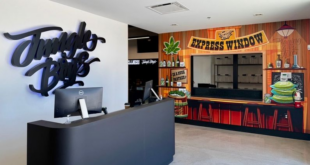
A recently released marijuana industry report revealed that for every $1 of legally sold marijuana an additional $2.60 of economic value enters the U.S. economy, and that doesn’t include consumer media or paraphernalia that exists regardless of marijuana laws. Instead, it encompasses businesses dependent on marijuana legalization, such as: cultivators, edibles makers, testing labs and companies that sell specialty goods and/or services to dispensaries.
23 states and the District of Columbia have legalized medical marijuana, and among them, Colorado, Washington, Oregon and Alaska have also legalized recreational marijuana. The marijuana industry as a whole is projected to rake in $11 billion in gross national product for 2015, and growing to $23-$29 billion by 2019. In medical dispensary sales alone, marijuana sales are projected to grow to $8 billion in 2019.
A few up-and-coming states mentioned to have huge opportunities for business development in the marijuana industry are: Arizona, which has a large population of seniors seeking healthy alternatives for prescription drugs; Massachusetts, which has been delayed in implementing it’s medical marijuana program but is projected to exceed $50 million once implemented; Illinois, which also has delays but is expected to soon become a thriving marijuana market.
Despite regulatory delays, the U.S.’s marijuana industry is growing and the projected revenues in 2015 for recreational sales in Colorado and Washington are between $800 million and $1 billion, surpassing M&M’s national sales. If adult use were legalized nationwide, the report projects annual revenues between $40 billion and $45 billion, surpassing wine and e-cigarettes.
Marijuana legalization is creating jobs as well, with 40,000 to 60,000 jobs being added nationwide in the marijuana and related industries (i.e., security services, testing labs, edibles makers, etc.). If marijuana were legalized nationwide it would add over 250,000 jobs in the U.S., many of them above minimum wage, the report claims.
 AZ Marijuana Arizona Marijuana Info
AZ Marijuana Arizona Marijuana Info






